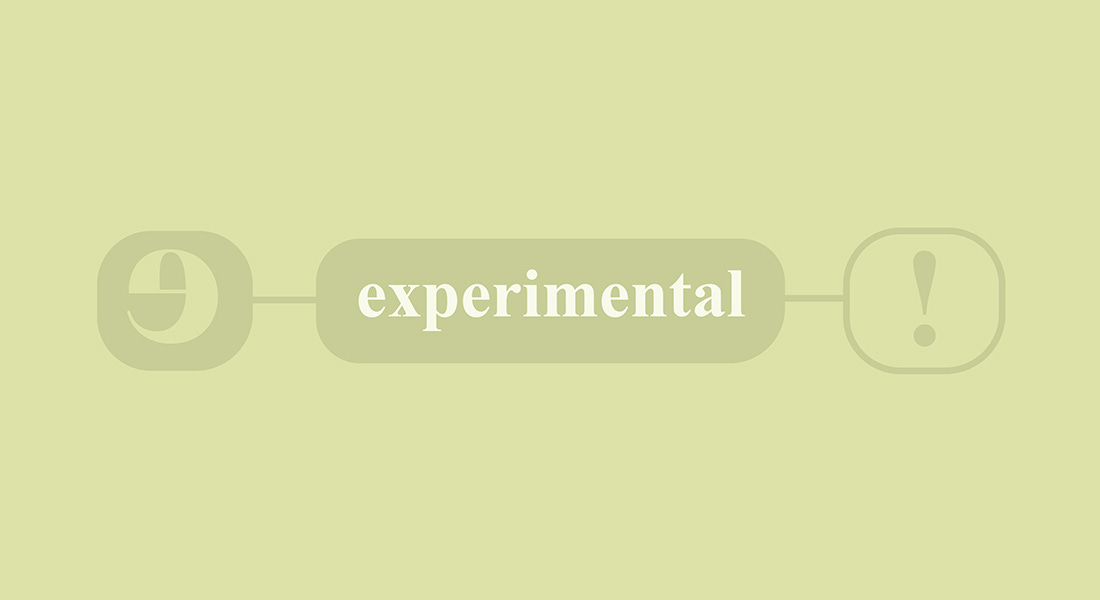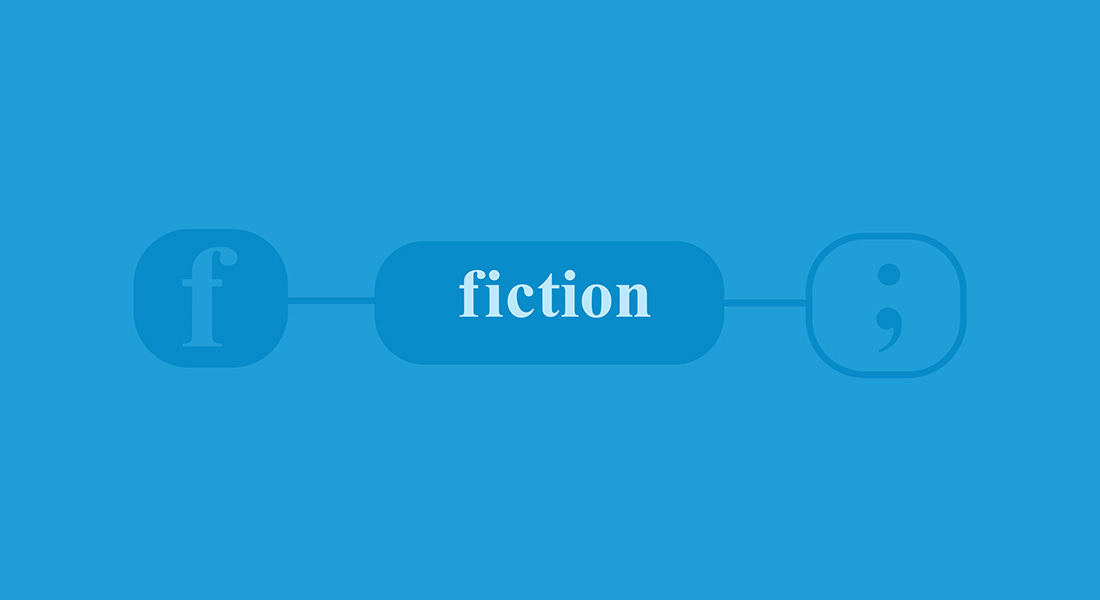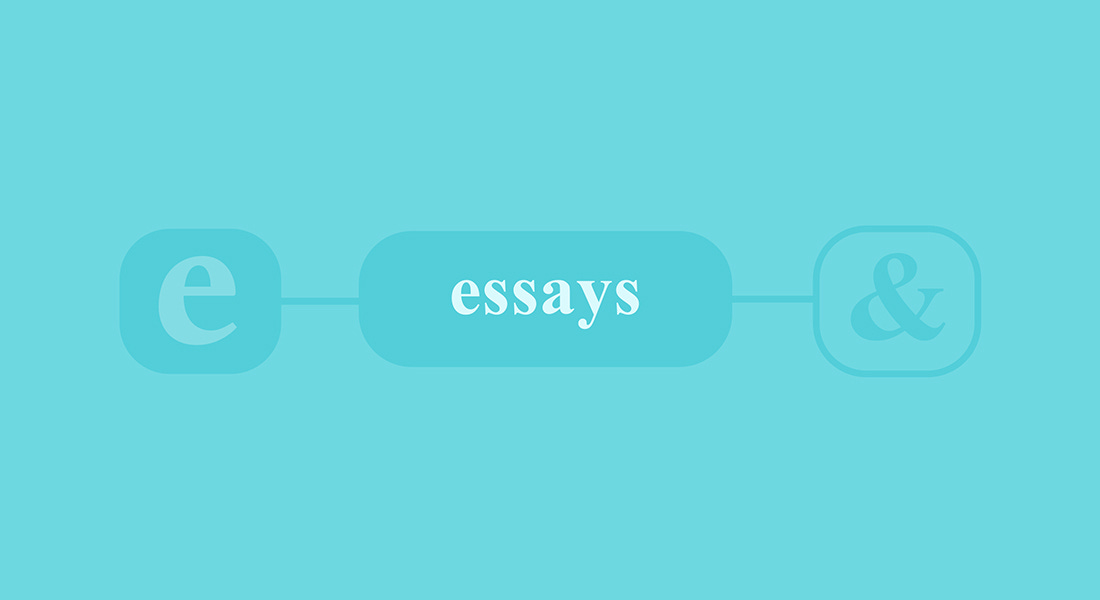Monthly Dispatch #22 — March 2025
A letter from the editor[s]
From centuries-old poetic forms to tricksy Oulipian play, the creative possibilities of constraint are well-established. Sitting down with the frame of writing something positive in this month’s editorial however, given the way things are, feels less like a generative gambit than it does an exercise in deranged self-delusion.
Of course, the difference lies in the general understanding that constraints in art-making tend towards the formal, while the content remains free, emerging from the viscous, black slime where intention, influence and expression (“self” or otherwise) stew.
Whereas in the long post-Romantic hangover, primacy has been granted to the writer-artist’s voice and/or vision—often with the lousiest of outcomes—what is potentially interesting about the current moment of increasingly sophisticated AI replication, is that a wider number of people than ever before don’t even feel the need to have anything to say or impart. Formalist reproductions, regardless of their quality, have become banal in much the same way that “artistic expression” has been able to justify any tepid fart of undigested human consciousness calling itself, for example, poetry.
Unable to rest on flaccid notions of selfhood and seeing the strictures of formal exigence undermined, where then to turn for those looking to escape the slop? Perhaps the answer is less to resist the advance of Chat-GPT and the like (though, to be clear, the ethical and environmental outrages of the AI project should absolutely be fought against by whatever means avail), but instead accept the challenge it has laid down. Rather than succumb to pessimism, we need to look for new forms, and, more than ever, shape our defiance around being irreproducible.
This was an attempt to be cheerful.
The Editor[s]
Selections From Your Loser World — Jenkin Benson
“cell rupt the cell rupt the cell rupt the cell rupt the cell rupt the correct line the correct line the correct line the correct line the longevity of mortar longevity of mortar longevity of mortar the longevity of mortar longevity of mortar longevity of mortar …”
Jenkin Benson is a 3rd year PhD student at the University of Notre Dame. He primarily studies the literary interchange between Ireland, Wales, and the Black Atlantic, focusing on writers like James Joyce, David Jones, and Claude McKay. He is also a poet and a musician interested in bending and estranging language. You can find his work here: www.chillsubs.com/user/siencynapbened
Greatly Failed — Tim MacGabhann
“Sun low in southwest sinking as I turn head sinking teeth into another crabapple: pale yellow crabapple, pale yellow air, pale yellow in bottles of instant clarity after crabapples let ferment in the cellar …”
Tim MacGabhann is the author of two novels, Call Him Mine and How to Be Nowhere; a long poem, Rory Gallagher—Live!—at the Hotel of the Dead; and a memoir, The Black Pool.
The Circus Animals’ Conscription — Avee Chaudhuri
“The Circus Animals’ Conscription is a volume of so-called ‘popular history,’ delving into the ecological destruction caused in Africa and Asia by the practices of the British circus industry in the Nineteenth Century. It appeared in print last year, published and promoted by a well-known press with offices in New York, London, Majorca and Tel Aviv. Its author is one Robert Phyllis-Darcy, a professor of history at the University of Wisconsin who seems to be wearing dentures in his author’s photo …”
Avee Chaudhuri teaches literature at a midwestern university. Twitter: @indigojackal
Ghost Dimension Harmonics: On Sean Bonney and Noise — Connor May
“As we are constituted of atoms that vibrate with a restless activeness, constantly punctuated and contaminated by other bodies and matter, prone to all sorts of interruptions and agitations, music can act on us as a radically disruptive force, or it can sedate us …”
Connor May is a poet, writer and support worker from North West England, currently residing in Belfast. He has published two short pamphlets in recent years: Poems for Chris Morris (Creative Writing Press) and Soap in a Dish Below Rain in a Valley (Electric Frog). Two of his previous essays have appeared on the SPAM zine website. He can be found on Twitter/X as @c_may_cm
Quod umbra est: Pasolini’s ‘David’ and the vulnerability of desire — Eric T. Racher
“The vulnerability of the poem is the vulnerability of the body. The vulnerability of the poem is a form of sacrifice …”
Eric T. Racher lives and works in Riga, Latvia. His work has appeared in Exacting Clam, Poetry Birmingham Literary Journal, ballast, and elsewhere.
X: @Eric_T_Racher Bluesky: @ericracher.bsky.social
[Untitled]: A Meditation — Colm O’Shea
“Constraints:
I knew someone. I told her once she was my heart.
When we really shouldn’t have, we went away together to a small cottage in the countryside.
In less than a month she would be dead.
Two months after that I sat down and considered a small moment from that time …”
Colm O’Shea’s short fiction has appeared in gorse, Winter Papers, The Stinging Fly, among others, and has been broadcast on RTE Radio. His first short story collection is forthcoming from Gorse Editions in 2025. He can be found at his website, and on Twitter @colm_oshea and IG @colmposhea
What a Shame! — Veronika Reichl (tr. Francesca Hyatt)
“It’s 1998. The lecture has just ended and Franzi’s favourite professor asks her to wait for a moment. Once the other students have left the classroom, he pulls Roland Barthes’ A Lovers Discourse: Fragments out of his bag …”
Veronika Reichl lives in Berlin as an author, illustrator and lecturer. Her latest publication was Das Gefühl zu denken (The Feeling of Thinking), was published in 2023. Instagram: veronika_reichl
Francesca Hyatt is a writer, translator and professor of English at CUNY-Queens College. She has an MFA in Creative Nonfiction and is an assistant editor at KtB Magazine. She lives in New York. Instagram: @francescavhyatt Website: www.francescahyatt.com
Living Things by Munir Hachemi (trans. Julia Sanches) — Adam McPhee
“Living Things by Munir Hachemi and translated by Julia Sanches (Coach House Books, 2024; 139 pages) is many things: a satiric literary manifesto, a dystopian eco-thriller about factory farming and gmo foods, and a look at precarious employment. But mostly it’s a summer roadtrip novel …”
Munir Hachemi is the author of Living Things (2018) and El árbol viene [The Coming of the Tree] (2023), and is also a translator from Chinese and English. In 2021, he appeared on Granta’s Best of Young Spanish-Language Novelists list. He currently lives in Buenos Aires. Living Things is published by Fitzcarraldo in the UK and by Coach House Books in the USA.
Julia Sanches is a literary translator working from Portuguese, Spanish and Catalan. Recent translations include Boulder by Eva Baltasar, shortlisted for the International Booker Prize 2023, and Undiscovered by Gabriela Wiener.
Adam McPhee is a Canadian writer. He has been longlisted for the CBC Short Story Prize and he writes a newsletter, Adam’s Notes, on substack. He lives in northern Alberta.
“Perhaps to write and read is to flow into our own chronic genre. And each fragment is a fugitive rebirth from the last.”: A Correspondence with Quyên Nguyễn-Hoàng — Alex Tan
Quyên Nguyễn-Hoàng is the translator of Nguyễn Thanh Hiện’s Chronicles of a Village, first published by Penguin Southeast Asia in 2022 and reissued by Yale University Press in April 2024. Narrated by a self-appointed scribe who sets himself the task of recording a rural community’s myths and evolutions, its idiosyncrasies and ghosts, Hiện’s book weaves a collective story. The oneiric, formally inventive text is composed of poetic fragments that dwell as much with wind and birdsong as with the havoc and carnage of wartime bombs. History and fiction mingle in confused orders of time, caught between the oral and the written; each chapter flows on uninterrupted by periods, the clauses separated only by commas. Across the rise and fall of dynasties—beneath the traumas of colonial modernity and ecological crisis—Hiện’s narrator appears to affirm the “profound philosophy of existence concealed within the deepest sentiments of human beings”. A single rice grain might distil within its slight body the voice of heaven and earth; a “small fragment of the world” might be the bearer of the universe’s sorrow.
Quyên Nguyễn-Hoàng is a writer and translator born in Vietnam. Her recent publications include Chronicles of a Village (Yale University Press 2024), a novel by Nguyễn Thanh Hiện. Her work has appeared in Poetry, Modern Poetry in Translation, Jacket2 and other venues.
Alex Tan is a writer still in search of a form. They have been Assistant Managing Editor at Asymptote Journal for the past three years, where they frequently review literature in translation, in particular Arabic literature. Other essays are forthcoming in Words Without Borders, Full Stop, and elsewhere. Some of their critical writings can be found here.
The Labyrinth (from Paradise & Hell) — Isabel del Río [19/03/20]
“Contrary to what some people might suggest, you can wander around a labyrinth without necessarily dirtying your hands …”
Isabel del Rio is a writer, poet, linguist, journalist, publisher. Born in Madrid, she has lived most of her life in London. She has published fiction and poetry in both English and Spanish. A co-founder of Friends of Alice Publishing, her website is www.isabeldelrio.com
Coming next month …
Novelist couple Vijay Khurana and Madeleine Watts in conversation, extracts from work by Raquel Delgado (tr. Alice Banks), Sienna Liu, Steve Hanson, and Simon Wortham, an interview with William Boyle, essays from Timothy May and Anandi Mishra, fiction from Laressa Dickey, and more …
![minor literature[s]](https://substackcdn.com/image/fetch/$s_!-mpf!,w_80,h_80,c_fill,f_auto,q_auto:good,fl_progressive:steep,g_auto/https%3A%2F%2Fsubstack-post-media.s3.amazonaws.com%2Fpublic%2Fimages%2Fe0117ca3-2d00-451e-b0c5-d09def5e487b_400x400.png)

![minor literature[s]](https://substackcdn.com/image/fetch/$s_!-mpf!,w_36,h_36,c_fill,f_auto,q_auto:good,fl_progressive:steep,g_auto/https%3A%2F%2Fsubstack-post-media.s3.amazonaws.com%2Fpublic%2Fimages%2Fe0117ca3-2d00-451e-b0c5-d09def5e487b_400x400.png)
![Minor Literature[s]'s avatar](https://substackcdn.com/image/fetch/$s_!DN0F!,w_36,h_36,c_fill,f_auto,q_auto:good,fl_progressive:steep/https%3A%2F%2Fsubstack-post-media.s3.amazonaws.com%2Fpublic%2Fimages%2F73f4cfd7-9b89-452a-8b15-9a1b271a062f_400x400.jpeg)







